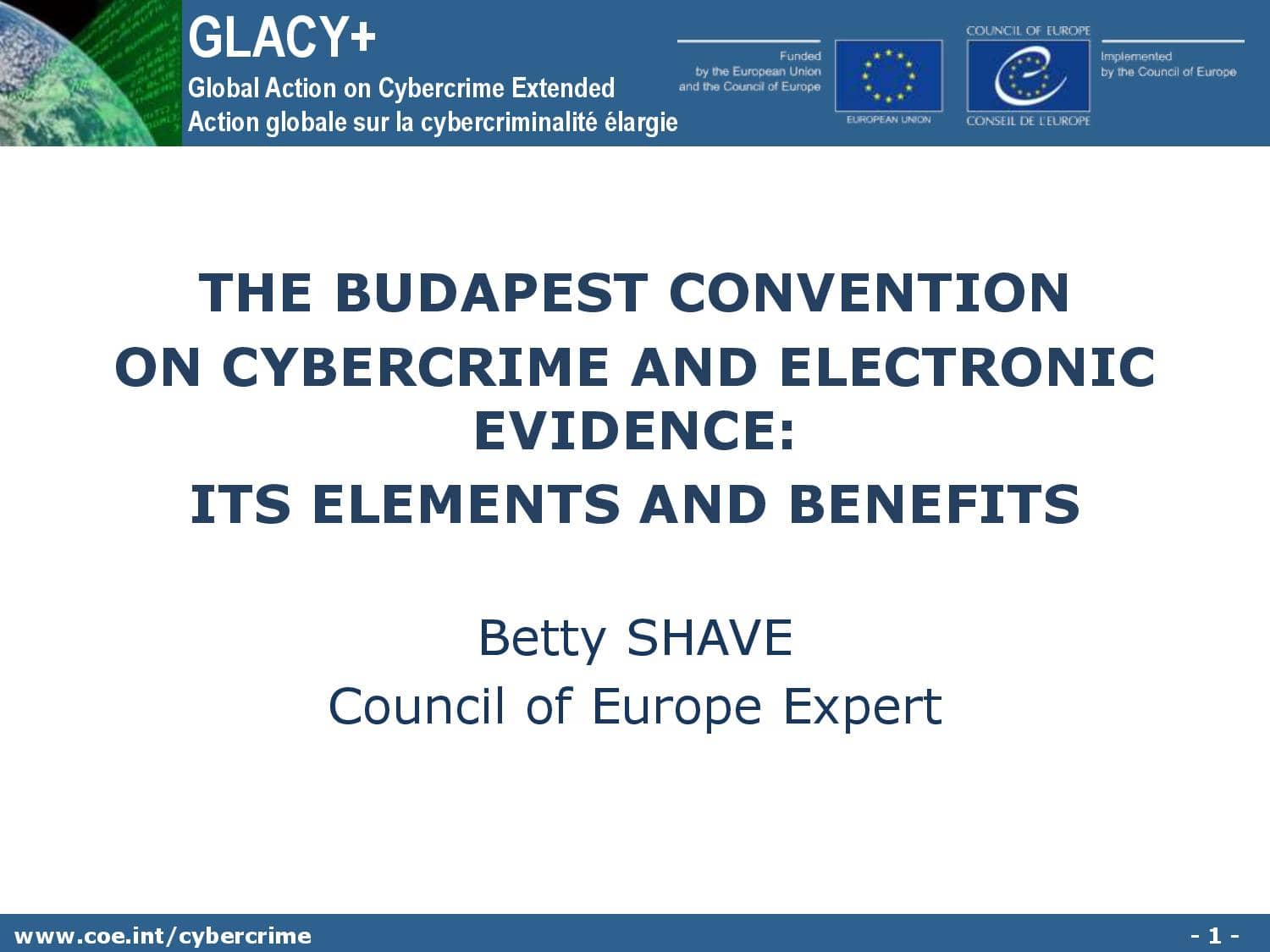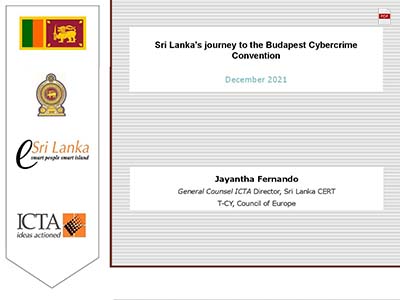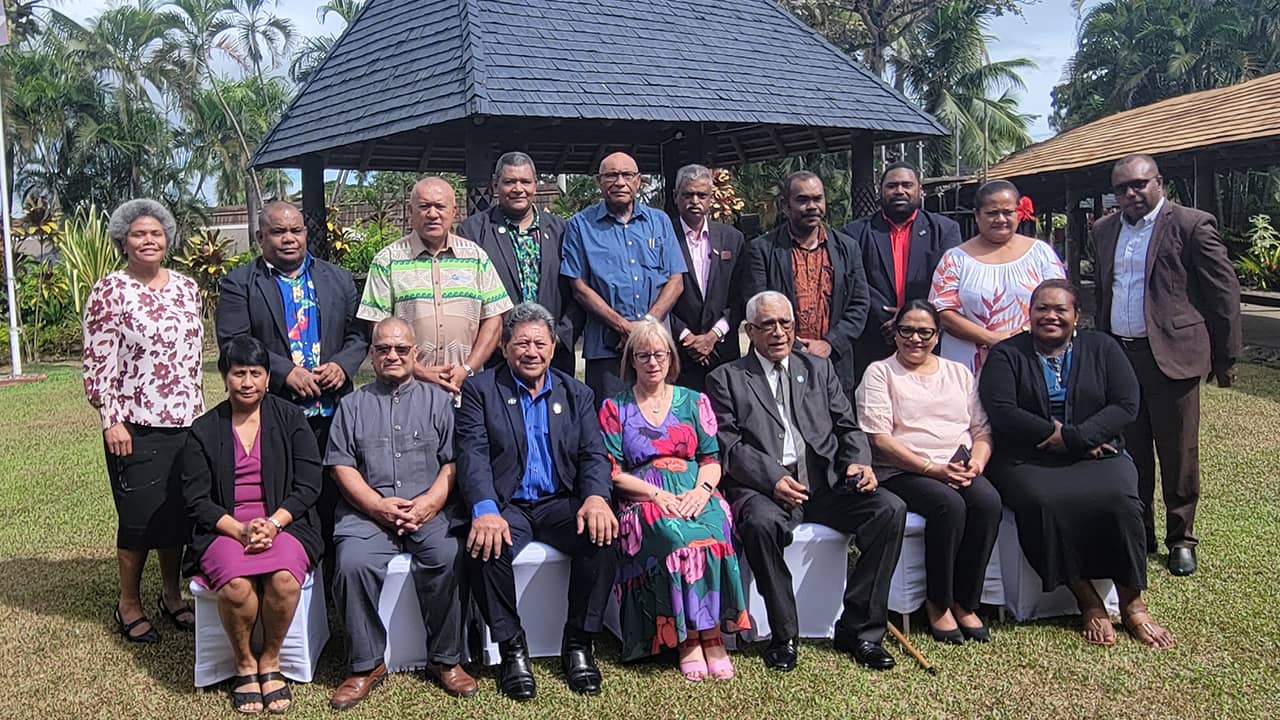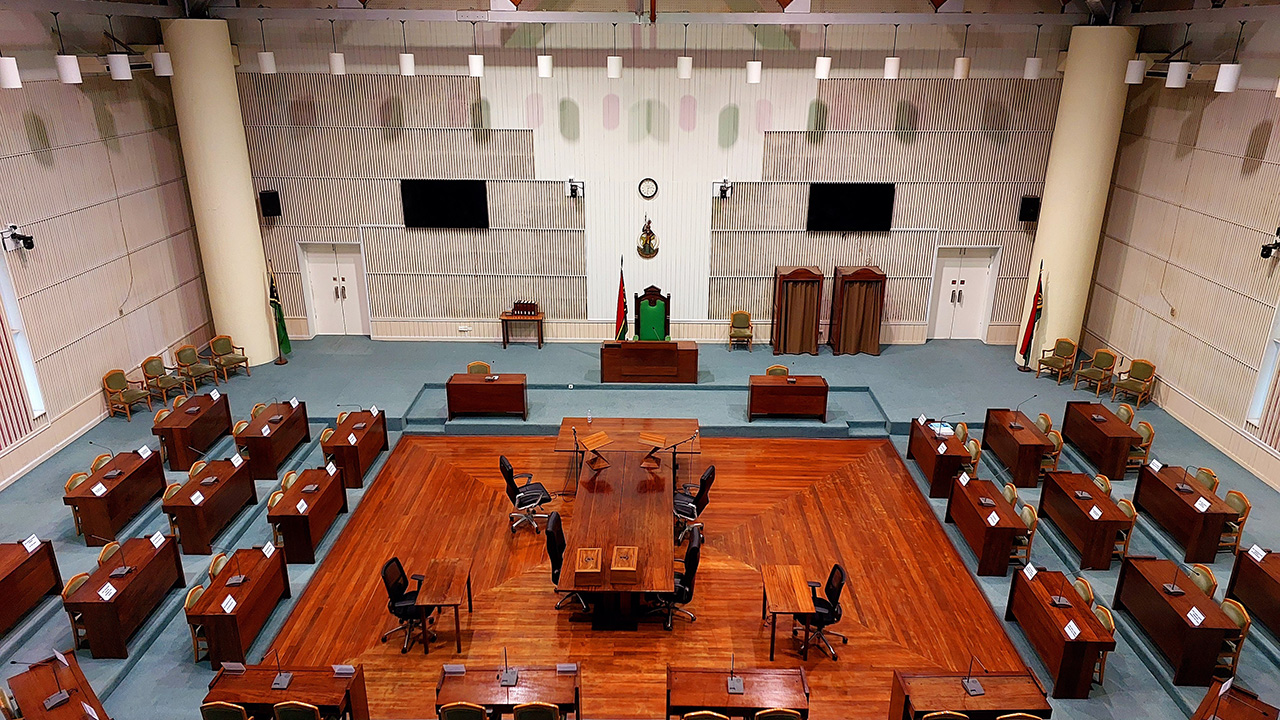
In cooperation with the Cybercrime Program Office of the Council of Europe (C-PROC), PGA's International Peace and Security Program organized a Regional Asia Pacific Webinar on December 8th, 2021 - Promoting Universality and Implementation of the Budapest Convention on Cybercrime and its Additional Protocols in which participants from 5 countries, Cambodia, Malaysia, Pakistan, Philippines and the Seychelles as well as 4 experts nominated by the Council of Europe – Cybercrime Division from the United States, Philippines and Sri Lanka participated. This Webinar was the third in a series of 4 Webinars being organized by PGA for Africa, Latin America, Asia/Pacific and Caribbean/CARICOM to promote Universality and Implementation of The Budapest Convention on Cybercrime and its Additional Protocols.
The Webinar was opened by Mr. Peter Barcroft, Senior Director of the International Peace and Security Program of PGA, providing an extensive contextual overview of the importance of the subject matter of the Webinar, noting how the current Covid-19 pandemic has only exacerbated this already significant threat to international peace and security. Thereafter, Mr. Virgil Spiridon, Head of Operations, Cybercrime Program Office of the Council of Europe (C-PROC), outlined the role and functions of C-PROC as well as the main attributes and benefits of the Budapest Convention. Mr. Spiridon also underlined the fact that countries in which cybercriminals operate worldwide should be equipped with the best tools to carry out successful investigations. Mr. Spiridon was also pleased to announce that both Fiji and Vanuatu will very shortly be invited to accede to the Budapest Convention and was pleased to note that representatives from both countries had registered for this activity.
In her presentation, Council of Europe Expert, Ms. Betty Shave, Former Assistant Deputy Chief for International Computer Crime, Computer Crime and Intellectual Property Section, US Department of Justice. discussed the importance and impact of the Budapest Convention in the criminalization of cybercriminal activities as well as in promoting greater international cooperation among States Parties. Ms. Shave also reflected at length on the numerous benefits accruing for countries who join the Convention, the significant complimentary assistance available from the Council of Europe to facilitate implementation, as well as underscoring the reality that this is a Convention which is being implemented on a regular basis in many countries worldwide on a daily basis.
In his presentation, Mr. Florian Delsert, Program Associate of PGA’s International Peace and Security Program, examined the numerous practical and pragmatic steps that Parliamentarians, both as advocates and lawmakers, can take to promote universality and implementation of the Budapest Convention and its Additional Protocols. Mr. Delsert also reviewed a few examples of the numerous serious cyberattacks experienced in 8 different States across the region in the past 18 months. In the context of cyberattacks on national parliaments themselves, the examples of Finland, Norway, Belgium, and Australia were briefly considered, before provision of sample legislation from the Philippines, Malaysia, and Indonesia.
Atty. Angela Marie de Gracia-Cruz, from the Cybercrime Unit of the Department of Justice of the Philippines, spoke about the experience of her country leading up to its accession to the Budapest Convention, with a particular emphasis on the considerable help provided by the Council of Europe Cybercrime Program.
Subsequently, Judge Rainelda Montesa, who presides over a specialized Commercial and Cybercrime Court in the Philippines, shared her own experience with the Convention and with working with the Council of Europe, in particular, the 24 hours 7 days technical assistance and the implementation of the Budapest Convention. She also mentioned that 177 cybercrime courts have been established throughout the Philippines to handle cybercrime cases and how instrumental C-PROC and GLACY+ have been in this endeavor as well. Judge Montesa also stressed that the capacity building did not only cover solely the scope of the Budapest Convention but the entire spectrum of cybersecurity and crime, as applicable in the Philippines..
Mr. Jayantha Fernando from the Information and Communication Technology Agency (ICTA) of Sri Lanka highlighted one example that was critical in the decision for Sri Lanka to accede to the Budapest Convention. In 1997, the Global Embassy Network of Sri Lanka was targeted by a massive cyberattack. It became evident that the country could not deal with such a problem alone. Sri Lanka thus, requested the assistance and expertise of other countries. The fast access to evidence is a critical factor to counter cybercrime. In 2008, Sri Lanka started its journey towards accession to the Budapest Convention with the e-Sri Lanka Initiative and finally acceded in 2015. Mr. Fernando concluded his presentation by mentioning that joining the Budapest Convention also provided a helpful opportunity to review and improve existing legislation, as also subsequently corroborated by Mr. Virgil Spiridon.
Participants had the chance to make comments and ask questions to the panelists during the interactive dialogue session. In his remarks, Hon. Andy Labonte from the Seychelles, thanked the panelists, noted that the Seychelles had just adopted comprehensive cybersecurity legislation in recent months and that this Webinar had provided him with very useful information that he will share with his parliamentary colleagues.
In his concluding remarks, Mr. Spiridon set out a few key points. Cybercrime is a transversal and global phenomenon. Criminal justice needs to be equipped with appropriate tools to fight it. Policymakers need to be made fully aware of these issues. Mr. Spiridon also mentioned that most of the investigations are cross border, and cooperation in accessing evidence in different jurisdiction was therefore essential.
Mr. Peter Barcroft, Senior Director of the International Peace and Security Program of PGA, concluded the webinar by thanking all the attendees for their participation and recalled once again that parliamentarians have a decisive and central role to play in promoting universality and implementation of the Budapest Convention and its Additional Protocols. Mr. Barcroft concluded the Webinar by expressing the hope that participants would be inspired by its proceedings to take necessary follow-up steps within their own respective countries.
List of Panelists and Participants
| Ms. Betty Shave | Former Assistant Deputy Chief for International Computer Crime Computer Crime and Intellectual Property Section, US Department of Justice | United States |
| Judge Rainelda Montesa | Judge - Commercial and Cybercrime Court in the Philippines | Philippines |
| Atty. Angela Marie de Gracia-Cruz | Cybercrime Unit of the Department of Justice of the Philippines | Philippines |
| Mr. Jayantha Fernando | Director of Sri Lanka Computer Emergency Readiness Team (CERT) - Information and Communication Technology Agency (ICTA) | Sri Lanka |
| Name | Role | Country |
| General Nara Phorn | Secretary General, National Authority for the Prohibition of Chemical, Nuclear, Biological and Radiological Weapons, Ministry of Defense | Cambodia |
| Hon. Tze Tzin Sim | Member of Parliament | Malaysia |
| Hon. Syed Naveed Qamar | Member of Parliament | Pakistan |
| Mr. Gamaliel Primavera | House of Representatives | Philippines |
| Mr. Juancho Torrevillas | House of Representatives | Philippines |
| Ms. Marie Loraine Ayson-Inton | House of Representatives | Philippines |
| Mr. Calvin Patrick Domingo | House of Representatives | Philippines |
| Mr. Ranier Alvarado | House of Representatives | Philippines |
| Ms. Ann Marie Santos | House of Representatives | Philippines |
| Hon. Andy Labonte | Member of Parliament | Seychelles |
| Mr. Virgil Spiridon | Head of Operations, Cybercrime Program Office of the Council of Europe (C-PROC) - CoE | Romania |
| Ms. Catalina Stroe | Program Manager - Cybercrime Program Office (C-PROC) - CoE | Romania |
| Ms. Irina Drexler | Project Assistant - Council of Europe | Romania |
| Ms. Andrada Antofie | Project Assistant - Council of Europe | Romania |
| Ms. Elena Duta | Project Assistant - Council of Europe | Romania |
| Ms. Gratiela Dumitrescu | Project Assistant - Council of Europe | Romania |
| Ms. Sinziana Hanganu | Project Officer - Council of Europe | Romania |
| Mr. Peter Barcroft | Senior Director of the International Peace and Security Program of PGA | United States |
| Mr. Florian Delsert | Program Associate - International Peace and Security Program of PGA | United States |








